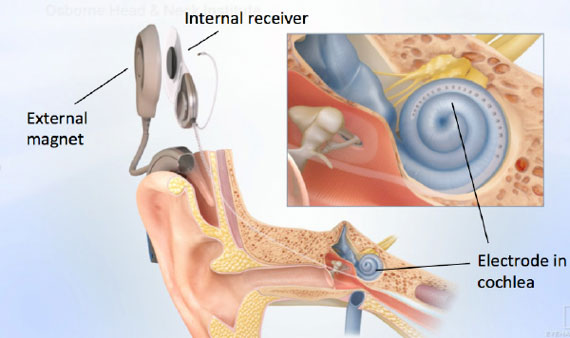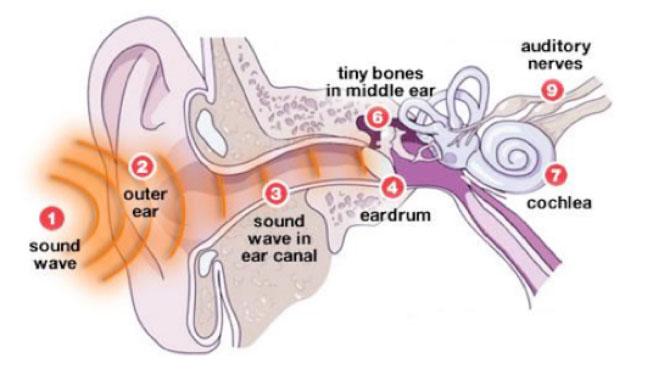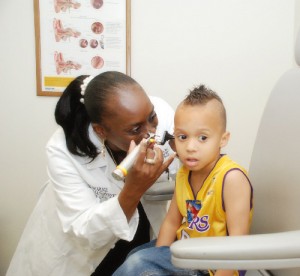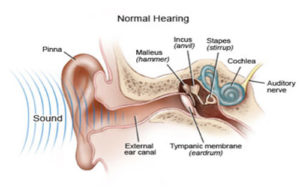
- Adult Cochlear Implants: Surgery and What to Expect - September 25, 2017
- Adult Cochlear Implants: An Overview - September 25, 2017

- Risks of Surgery for Surfer’s Ear - October 26, 2017
- The Dangers of Untreated Exostosis / Surfer’s Ear - October 26, 2017
- Surfer’s Ear Treatment: Chisel vs Drill - October 26, 2017
Who can receive a cochlear implant?
Many adults who have partially or fully lost their hearing have probably tried one or more types of hearing aids without much improvement. Most of these patients, however, are unaware of the availability of cochlear implants, an option that can provide increased hearing. A cochlear implant may offer that miraculous second chance to those who have hearing loss and only enjoy minimal benefit from conventional hearing aids.

Many people who suffer from hearing loss think that only children or adults that are completely deaf can receive a cochlear implant. These assumptions are false, however. Cochlear implants can be successfully placed in patients of all ages. In addition, most recipients of cochlear implants are not completely deaf and have some residual hearing that is not adequately serviced by conventional hearing aids alone. For example, patients that have lost fifty percent of their hearing are generally candidates for cochlear implants. Even though these patients may still hear sounds, there is no clarity in their hearing. Cochlear implants can provide these patients with clear hearing.
It is important to note that cochlear implants are not necessary for all people with hearing loss. Hearing aids generally are the first line option for hearing loss. Many patients with severe to profound hearing loss, hearing aids simply do not suffice. Many patients keep trying to gain back their hearing with stronger and stronger hearing aids. The results are ineffective and not in line with the associated expense. In cases without any effective change in hearing, cochlear implants are the next best option, and possibly the only option.
How does a cochlear implant work?
In an undamaged ear, sound waves travel through the ear canal to the ear drum (tympanic membrane) and trigger a reaction that causes vibrations within the middle ear. These vibrations are carried to the cochlea, which is an organ in the inner ear that translates the sounds into nerve impulses. These impulses are carried via the auditory nerve to the brain. For patients without the ability to hear properly, cochlear implants bypass the damaged parts of the ear by sending signals straight to the auditory nerve and then on to the brain.

How can an implant change my daily life?
Despite reservations due to time constraint, lack of awareness and education, and inaccurate fear of the costs, cochlear implants provide a completely new life for those who have slipped into a world secluded from sound or secluded from the clarity of sound. Adults can re-enter their world without worrying. They can have conversations again with family and friends without being concerned about not hearing the other person’s words, without worrying about lip-reading or background noise, and without worrying about speaking too loudly. They can once again use the phone without using hearing aids brought up to maximum amplification. They can stroll down the street safely because they can hear the danger of an oncoming car. They can appreciate sound and speech with better awareness and clarity.
When a patient is thoroughly evaluated and found to be the right candidate for cochlear implantation, the ensuing process is almost always beneficial to them and the loved ones around them. After losing hope and being let down by a hearing aid after another, these patients are finally provided the opportunity to re-enter the auditory world, hear their loved ones, and take pleasure with a second chance in life. This ability to regain sound is priceless, timeless, and should have no bounds.
Those considering a cochlear implant should be evaluated by a qualified otologist. Otology is a subspecialty of otolaryngology (ENT). These physicians are experts at evaluating and diagnosing conditions of hearing and balance.
To learn more about hearing and cochlear implants, please visit: eardoctorla.com.



